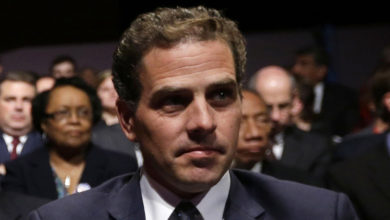FDA: Once Dominant E-Cig Brand Juul Must Exit U.S. Market

Juul Labs was once a well-known e-cigarette brand known for their fruity flavor. It has been accused by federal regulators and health groups of inciting a youth vaping crisis. According to the U.S. Food and Drug Administration, it must withdraw all its current products from the U.S. marketplace.
The FDA’s order means that Juul must stop selling and distributing its device and accompanying menthol- and tobacco-flavored e-liquid pods in the U.S. In a June 23 statement, FDA officials said they did not have enough data about the toxicological risks of Juul’s products to authorize their continued sale.
“To date, the FDA has not received clinical information to suggest an immediate hazard associated with the use of the JUUL device or JUULpods,” the statement says. “However, the [decision] issued today reflect FDA’s determination that there is insufficient evidence to assess the potential toxicological risks of using the JUUL products.”
This controversial decision comes days after FDA plans to reduce nicotine in cigarettes. It could be a catalyst for a reorganization of the U.S. vaping market. Although Juul’s market share has declined in recent years due to declining sales, the e-cigarettes it makes are still very popular. Based on data from convenience stores, Juul claimed to have a 33% share of the U.S. market for e-cigarettes as of May. Although Juul products can be sold elsewhere, its biggest market is the United States.
Altria, a tobacco giant, lost almost 10% in its shares after Wall Street. Journal reported on the FDA’s expected decision on June 22.
Juul can appeal or challenge the decision in court. This would allow the company’s products to remain on the marketplace while it litigates the matter. A high-tech, legal-aged version of the company’s product could be authorized by Juul. Although such a product isn’t currently available in America, versions were sold in Canada as well as the U.K. Juul representatives did not respond immediately.
Eric Lindblom, a former official at the FDA’s Center for Tobacco Products and a senior scholar at the O’Neill Institute for National and Global Health Law, was initially surprised after news broke that the FDA was expected to take Juul off the market, given that the agency recently authorized other similar vaping devices. The agency’s concerns about toxicological risks raise serious questions, he says.
“If FDA knew about this possible risky technical problem with Juul’s e-cigs, why didn’t it take action against those currently on the market sooner to protect consumers against leaching harmful chemicals, etc.?” he wrote in an email to TIME. “Are these technical problems unique to Juul—and not shared by any of the e-cigs FDA has allowed on the market?”
The FDA has been reviewing the data of U.S. vaping manufacturers for almost two decades to assess whether they can help improve public health. That assessment largely hinges on whether a particular product provides enough benefit to smokers—by helping them switch to a less-dangerous alternative to cigarettes—to make up for downsides like underage use or health risks related to vaping.
A former Juul employee with knowledge of the company’s FDA application says there’s “no question” it met that standard with its data—though the FDA evidently disagreed. “Many of these decisions are political,” the former employee says. “They’re not necessarily based on the evidence.”
The FDA denied more than 1,000,000 applications for e-cigarettes, many of them from independent vaping businesses. But it has granted marketing authorization to some major manufacturers, including some of Juul’s direct competitors.
In October 2021, the FDA authorized tobacco company R.J. Reynolds’ Vuse Solo and its tobacco-flavored pods, making it the first e-cigarette to be sold in the U.S. with the agency’s clearance. Additional Vuse products were authorized by FDA in May 2022. In June, NJOY tobacco-flavored products were approved by FDA in June.
“The only difference [between those companies and Juul] is the social phenomenon that’s attached to [Juul],” says the former Juul employee. “There’s no way to divorce that from Juul the brand.”
Juul has always had to fight the FDA because of its popularity as a popular product with teens. In 2019, at the height of what the FDA called a youth vaping “epidemic,” 27.5% of high school students said they currently vaped. Juul was blamed widely for the phenomenon by both independent experts and Dr. Scott Gottlieb, former FDA Commissioner. “The dramatic spike of youth [vaping] — that was driven in part, at the very least, if not largely, by Juul,” he told Vox in a 2019 interview.
In 2015, the device made a big splash. The Juul’s colorful, vibrant launch campaign showcased young models with trendy looks and displayed the device in a way that some experts believe was intended to attract young people.
Juul repeatedly denies that it targeted teens, but that impression has not been shaken. As youth vaping rates climbed upward over the years, “juuling” became both a cultural phenomenon and shorthand for underage vaping. Some high schools went so far as to ban flash drives—since they were so easily confused with Juuls—or to remove stall doors in the bathrooms, where students vaped so much they were nicknamed “Juul rooms.” Even after it pulled its fruity and sweet flavors off store shelves, shut down its U.S. social media accounts, stopped most advertising, and invested $30 million in youth vaping prevention, Juul was still known as the brand that sparked a new form of teen nicotine addiction.
Juul was not the only one to be regulated, as it was all of vaping. Early 2020 saw the Trump Administration restrict the sale many flavors of e-liquids. At the same time, Trump Administration increased the minimum age for selling tobacco to 21.
In the recent years, youth vaping has been declining. Federal data shows that about 11% of high-school students, and 3%, of middle-school students, will be vaping by 2021. Juul is no longer the preferred brand for teens vaping: Just 6% of teenagers surveyed said Juul was not their favourite brand. 26% said Puff Bar was their preferred brand.
Juul wasn’t popular enough to be a household name among American teenagers, so federal regulators weren’t too optimistic about ecigarettes. Gottlieb, then the FDA Commissioner, announced an ambitious plan in 2017 to transform how Americans smoke nicotine. He advocated to promote safer alternatives like patches, nicotine gum and e cigarettes.
“We thought e-cigarettes could provide a less harmful alternative for adult smokers who don’t want to quit nicotine,” Gottlieb said in an interview for my book, Big Vape: Juul’s Incendiary Rise. “Obviously, our worldview and framing pivoted…when we started to get reports that youth use of e-cigarettes was rising. We started to implement a series of enforcement actions against Juul, in particular.”
That new worldview was apparent after news of the FDA’s expected decision broke on Wednesday. “JUUL was [the] fulcrum of the youth vaping crisis; it was driven by their product and marketing practices,” Gottlieb tweeted. “FDA is right to be circumspect.”
Despite Juul’s controversial past, some believe that regulating the product out of existence is a loss for public health. E-cigarettes are also used by adults looking for a less-harmful alternative to cigarettes, and removing one of the country’s top brands from the market could make that more difficult.
There’s plenty of debate over how well e-cigarettes actually work for adults looking to stop smoking, and many questions remain about their long-term health effects. Studies have shown that e-cigarettes can help some people quit smoking and are less toxic than tobacco cigarettes. A significant number of Americans are affected by smoking-related disease each year. Any improvements in this area can be vital.
FDA’s aggressive approach towards tobacco regulation was a result of the Biden administration. The FDA has announced plans to ban all menthol cigarettes, and more recently it stated its intention to limit the nicotine content in cigarettes. Its decision to order Juul off the market is a continuation of that bold—and polarizing—public-health trend.
Here are more must-read stories from TIME





